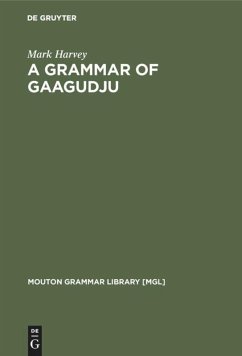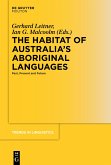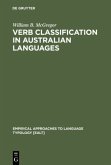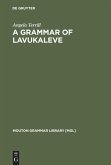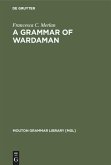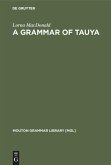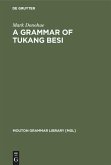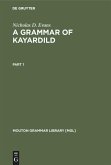Gaagudju is a previously undescribed and now nearly extinct language of northern Australia. This grammar provides an overall description of the language. Australian languages generally show a high degree of structural similarity to one another. Gaagudju conforms to some of the common Australian patterns, yet diverges significantly from others. Thus while it has a standard Australian phonological inventory, its prosodic systems differ from those of most Australian languages, with stressed and unstressed syllables showing marked differences in realisation.
Like many northern languages, it has complex systems of both prefixation and suffixation to nominals and verbs. Prefixation provides information about nominal classification (4 classes), mood, and pronominal cross-reference (Subjects, Objects, and Indirect Objects). Suffixation provides information about case, tense, and aspect. As in many languages, there is a clear distinction between productive and unproductive morphology. Gaagudju differs from most Australian languages in that a considerable amount of its morphology is unproductive, showing complex and irregular allomorphic variation.
Gaagudju is like most Australian languages in that it may be described as a free word order language. However, word order is not totally free and strictly ordered phrasal compounding structures are significant (e.g. in the formation of denominal verbs).
Like many northern languages, it has complex systems of both prefixation and suffixation to nominals and verbs. Prefixation provides information about nominal classification (4 classes), mood, and pronominal cross-reference (Subjects, Objects, and Indirect Objects). Suffixation provides information about case, tense, and aspect. As in many languages, there is a clear distinction between productive and unproductive morphology. Gaagudju differs from most Australian languages in that a considerable amount of its morphology is unproductive, showing complex and irregular allomorphic variation.
Gaagudju is like most Australian languages in that it may be described as a free word order language. However, word order is not totally free and strictly ordered phrasal compounding structures are significant (e.g. in the formation of denominal verbs).

